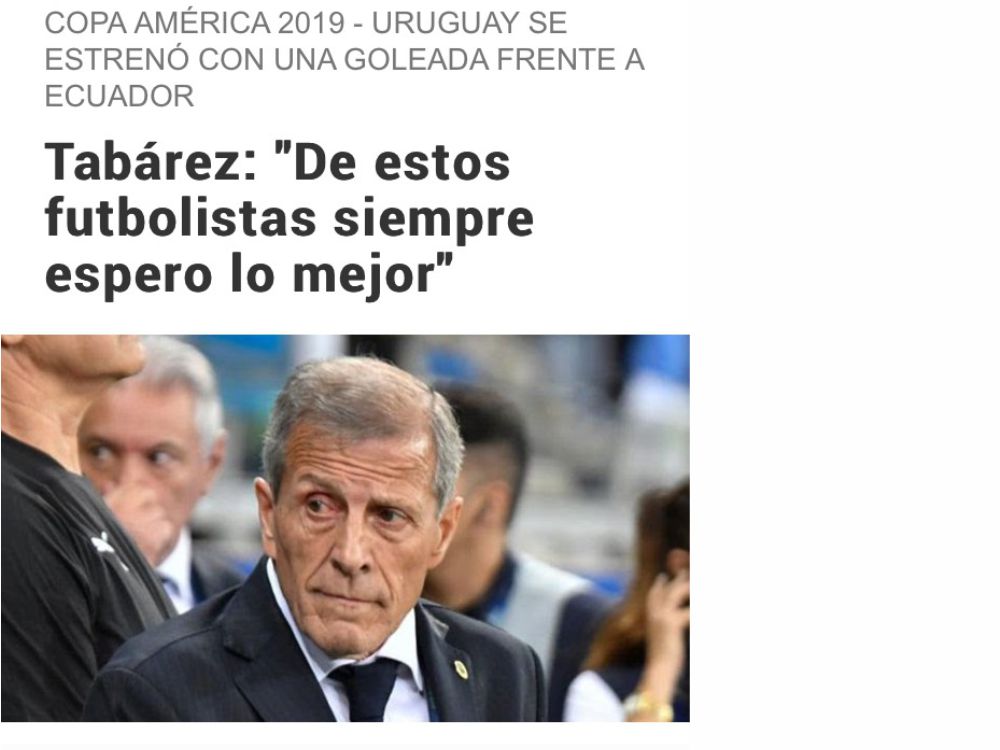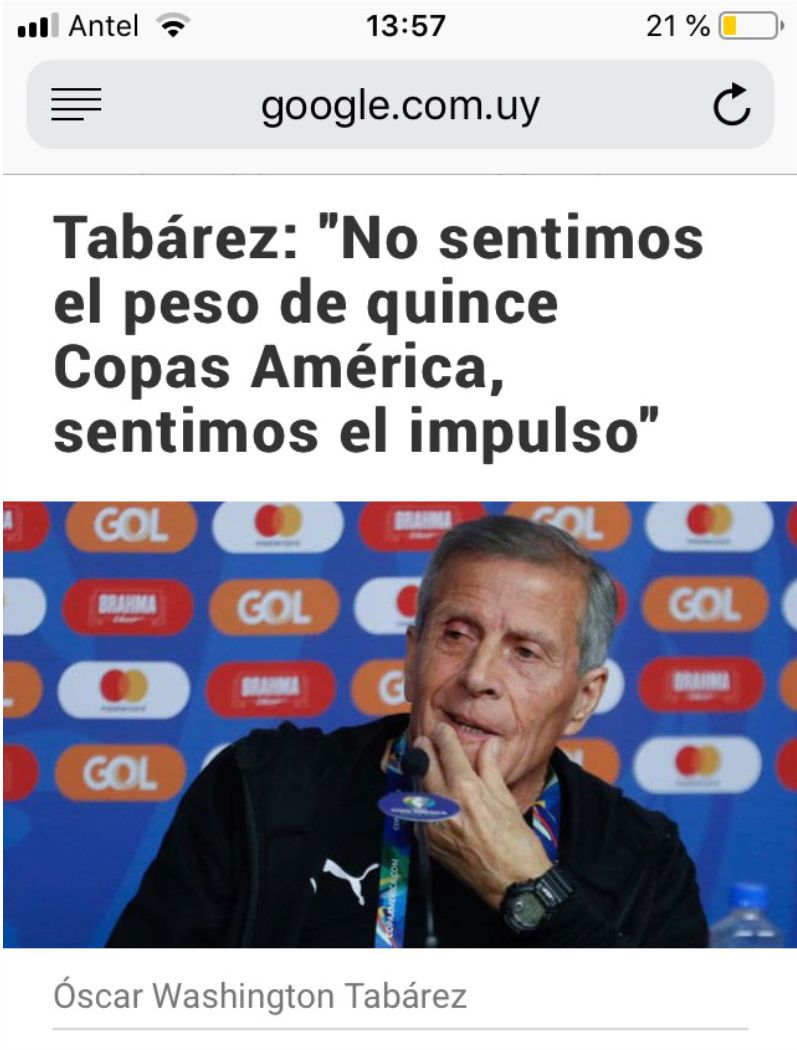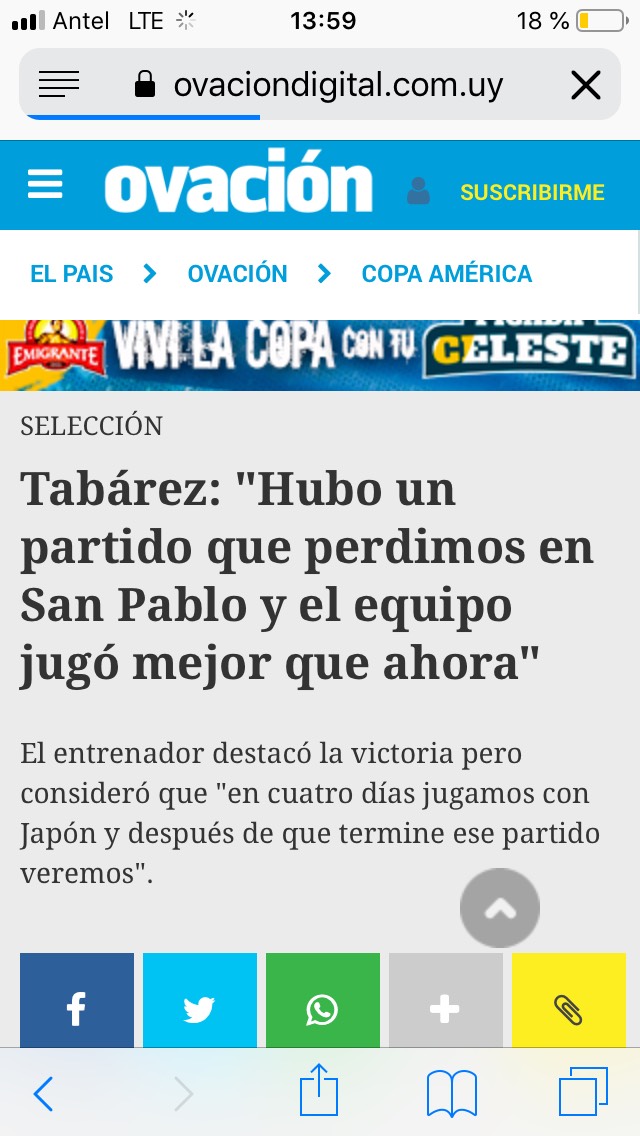
If we thought about what tasks must be carried out
a football coach and at what times, we could
to better understand the different instances that have been identified
in research on issues of self-regulation of learning.
June has arrived, as has the long-awaited Copa América, and with it the evaluations at the different school stages. Parents and educators in general have the difficult task of accompanying our students to go through this moment, seeking to make it another opportunity for learning. However, we must recognize that it is not always lived with this spirit and so fears and feelings of anxiety appear, which are so frequent that in some cases they make students uncomfortable and in others they can even block them.
The truth is that much of what is experienced and felt in this month of evaluations has to do with everything that has been done up to this point and not so much with what is happening now; however, this is not easy for young people to visualize, who often interpret difficulties or failures as a punishment and not as a natural consequence of their performance and evolution. So we often hear phrases like “it is impossible to perform in the evaluations if they put them all together”, “I don’t understand what happened, I studied everything and I did poorly” or “what happens is that the teacher hates me”. On the other hand, we find parents and companions who are also somewhat disoriented regarding what attitude to take. They tell us then, “when I ask him about something at school he tells me not to get involved”, “he told me that he was doing well with the subjects and that he had nothing to do at home and then the grades did not reflect this” or “I see him all the time connected to the cell phone and computer but I don’t want to take it away from him because he tells me that there he has important information for studying.”
 But what does success depend on in these evaluation moments? There are many factors that can come into play here, some that have to do with the student and others that have to do with the evaluation proposals themselves. Today we want to focus on what concerns the student, placing special emphasis on the well-known ability of self-regulation, a skill that we have talked about in another article on this Blog. Studying is a complex task that requires students, especially as they grow, to develop mechanisms that allow them to govern themselves and become increasingly strategic in their learning; these processes have to do with the ability of self-regulation, a complex process that integrates many components such as cognition, affections and motivation, among others, but today we will try to land it in a more concrete way so that they can become familiar with it and accompany their children in the development of this competence.
But what does success depend on in these evaluation moments? There are many factors that can come into play here, some that have to do with the student and others that have to do with the evaluation proposals themselves. Today we want to focus on what concerns the student, placing special emphasis on the well-known ability of self-regulation, a skill that we have talked about in another article on this Blog. Studying is a complex task that requires students, especially as they grow, to develop mechanisms that allow them to govern themselves and become increasingly strategic in their learning; these processes have to do with the ability of self-regulation, a complex process that integrates many components such as cognition, affections and motivation, among others, but today we will try to land it in a more concrete way so that they can become familiar with it and accompany their children in the development of this competence.
Returning to the Copa America, it seems obvious that the Uruguayan team needs a technical director (DT) to regulate it. Likewise, each one of us and also our children need a technical director who is in charge of regulating the learning activities. It can be a great DT who makes his team play very well (and hopefully obtain good results as a result), or a very bad DT who has poor control and influence over his players and who does not allow them to shine on the field displaying their full potential.
If we were to think about what tasks a football coach must carry out and when, we could better understand the different instances that have been identified in research on self-regulation of learning. There are different explanatory models of this phenomenon of self-regulation linked to learning, with different emphasis on the different processes that comprise it (cognitive, affective, motivational), but despite this there is a certain agreement that it is a process that consists of different stages that, to simplify the reading, we could summarize in the following three instances: planning stage, the execution phase and that of assessmentThese three stages, which would be present in the learning process, do not occur sequentially but rather in a cyclical manner, so each of them will be adjusted depending on how the other stages develop.
Perhaps it may be easier for the reader to see how these processes occur in a real football match, and then transfer it to the learning sphere. So, before the Copa América began, Tabárez developed a plan taking into account all the rivals we would have to face. He surely sought to get to know them and also studied in depth the performance of his own players, possibly set goals and organized matches prior to the Cup to train and make decisions regarding his team; all these processes refer to the planning stage. Once in the match, this plan that was drawn up begins to materialize and Tabárez's fundamental task will be, from the outside, to monitor the match to see what changes or adjustments he must make to maintain the goal he set before starting (winning, we hope!). Here it is to be expected that unforeseen events and obstacles will occur during the match that he may not have thought of and he must manage all this so that the team gives its best (so far, the execution phase). At half-time, there is an opportunity for reflection, at which time what has been done up to that point is evaluated and it is seen whether it is necessary to correct the course. With this in mind, the players go out onto the field again to put into practice what was discussed and reflected upon. Once the match is over, it is time for self-evaluation. There is a result that is satisfactory or not satisfactory, and there are multiple explanations that can be made to understand what happened in that match.
Likewise, students have an internal coach that we will call the “Self-regulation” function. This coach is the one that will help them regulate their activity. So, just as teacher Tabárez thinks and plans the games, students, before facing an evaluation or during learning in general, set goals and plan their activity. It is true that there are some who are very good coaches in this sense and others who can show up to the game without even having put together the team of players or without having thought about how their opponents play.
Some of the questions that a good DT can ask themselves would be: What are my goals regarding the learning in question? When faced with a test, they could ask themselves: How much time will I study? What subjects should I prioritize? Which ones could I study alone and which ones do I need help with? Which topics are for the midterm or the evaluation? How well do you master the topics so far? What help might you need? What would be the most appropriate study device (alone, in a group in the Magis space)? Do I have the necessary material? Is there a consultation space prior to the evaluation? Is there a classmate who can guide me on the aspects that I cannot master? That is, during this phase the student will set goals and plan and organize their learning, taking into account time, resources, content, etc. It should be noted that this is a process that we often notice is carried out in a less conscious way and/or that is easily overlooked, generating the illusion that progress is being made more quickly.
Once the game has started, whether while studying for a test or during its execution, it will be important for the student to be able to evaluate his activity and put resources into sustaining himself in the effort to achieve his goals. Am I doing well with this team that I put to play? Do I have to make any changes? What can I say to my players to motivate them and keep them focused? Regarding learning, some questions that can help them reflect could be: Is the planning I made of the topics and the time it is taking me tight? Are there points that I do not understand and I need to make changes in my study plan? How do I maintain my concentration and not be aware of social networks, or other distractions that threaten my study plan? How do I make sacrifices and reject activities that may be more attractive, in the face of the sometimes boring or tedious task of learning? That is, all activities aimed at maintaining attention, monitoring the understanding of the content and regulating emotions and sustaining effort, are key to being able to execute the action plan.
 Finally, the time comes for evaluation, either during the interval or at the end of the match. Here it is important to note that it will be very important to know the student's explanation of what happened on the field. Losing because I was not able to think well about my team is not the same as losing because the referee was biased or because we were playing at altitude. It is based on how we explain the results obtained that we will redefine our goals and evoke an affective response, which can be positive and result in greater motivation, or in a feeling of frustration and hopelessness that will probably lead to avoidance behaviors, among others. It is important that adults, when faced with failures, do not act like disappointed fans; a critical and reflective but not punishing look, in which they can help the children reflect on their achievements and errors and thus correct their goals and action plans again, so that they are increasingly more effective, can be much more effective than scaring them or punishing them for their grades. Results, just like in football, cannot be guaranteed by effort. Yes, you can minimize the probability of failure, but nothing guarantees winning the game. If the kids feel that losing the game is devastating, they will not be able to think about what happened or look for strategies to work on the aspects that need improvement.
Finally, the time comes for evaluation, either during the interval or at the end of the match. Here it is important to note that it will be very important to know the student's explanation of what happened on the field. Losing because I was not able to think well about my team is not the same as losing because the referee was biased or because we were playing at altitude. It is based on how we explain the results obtained that we will redefine our goals and evoke an affective response, which can be positive and result in greater motivation, or in a feeling of frustration and hopelessness that will probably lead to avoidance behaviors, among others. It is important that adults, when faced with failures, do not act like disappointed fans; a critical and reflective but not punishing look, in which they can help the children reflect on their achievements and errors and thus correct their goals and action plans again, so that they are increasingly more effective, can be much more effective than scaring them or punishing them for their grades. Results, just like in football, cannot be guaranteed by effort. Yes, you can minimize the probability of failure, but nothing guarantees winning the game. If the kids feel that losing the game is devastating, they will not be able to think about what happened or look for strategies to work on the aspects that need improvement.
Some of the questions that can be asked to see how they are evaluating their activity would be, for example, when finishing studying a material: How do I know what I know? Did I achieve the goals I expected? Was my performance in line with my expectations? Why didn't I manage to do that exercise? It will also be very important to stop and look at the feedback from teachers, whether in evaluations or in the daily feedback of the class. When receiving a grade, it would be important for each student to ask themselves how they feel about this grade. If they are not satisfied, think about why and what alternatives exist to improve their performance or communication with the teacher in question. But for them to be able to do that, we, as adults, should model for them that this is the meaning of receiving a grade, it is a way of knowing how my learning process is developing and not an arbitrary grade that the teacher gives to make me and my parents happy or irritated.
To conclude, we would like to make it clear that being a good or bad coach of my own learning depends a lot on how much this coach trains and works on himself. That is why we suggest that you foster a climate of trust and stability at home, which allows children to think about and review their study strategies.
Both at school and at home, it will be important that we seek, through our attitudes, advice and comments, to make young people feel understood and supported. It is important that as adults we help them to think, to organize themselves and to regulate their emotions. Scaring them into working can be counterproductive since, instead of promoting the flexibility necessary to learn how to learn, it can make them rigid and consequently condemn them to repeat inefficient or unproductive patterns of self-regulation.
We are invited to educate in these tools that are so important for life, paying close attention to these processes and modeling self-regulated behavior with our example. Let us introduce our students to our own DT, with their successes and mistakes, so that they can create their own model also with our example.
Psych. Veronica Hughes
SOURCE of the images: google.com